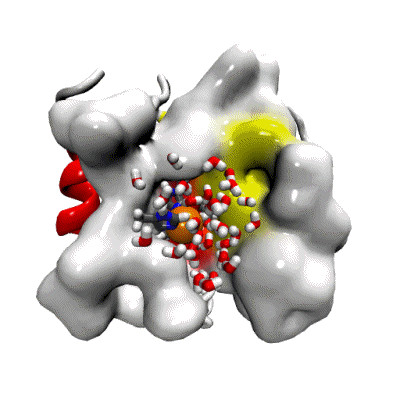
All groups using the simulation cluster facility share a common interest and quest to understand "molecular systems within the framework of quantum mechanics".
Fundamental to this endeavour is the synergistic combination of experiments that address properties site-specifically at the single molecule level with advanced computational approaches.
The theoretical groups cover altogether a wide spectrum in theoretical chemistry, which reaches into the realms of theoretical biology and theoretical physics. Specific research areas are dynamical ab initio simulations of complex many-body systems at finite temperatures, the development of response methods, photochemistry and optical properties, biomolecular simulations on large time- and length-scales and the development of neuronal network methods for the heterogenous catalysis.
Enlarge imageThe simulation clusters are housed in a dedicated state-of-the-art machine room with massive water cooling capabilities. For obvious reasons the electric power supply is installed under the ceiling whereas the water cooling installation is located within the double-floor below the cluster racks. The dissipated heat is also used to heat the building.
Enlarge imageSimulation Cluster 1:
Big Data Analysis Server:
Simulation Cluster 2:
Simulation Cluster 3:
Laboratory Manager -
Simulation
Room:
ZEMOS 0.25
Phone: +49 234 32 -
26751
E-Mail
Techniker -
IT-System-Administrator, Linux-Server
Room:
ZEMOS 01.71
Phone: +49 234 32 -
12520
E-Mail